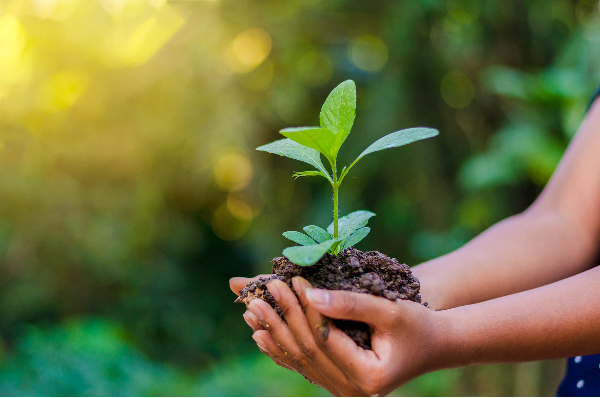
How planting seeds can boost brain health.
Did you know that the simple act of growing a plant from seed is not just a garden adventure but also a scientifically proven way to improve brain health? In this article, we’ll explore the scientific aspects of how nurturing a seed into a thriving plant can positively affect our brains, providing a green pathway to enhanced cognitive well-being.
Nature Connection
Scientific studies have shown that connecting with nature, even in small ways like growing plants, has profound effects on the brain. When we engage with plants, the brain releases chemicals such as dopamine and serotonin, which are associated with happiness and well-being. The sights, smells, and textures of plants activate different regions of the brain, promoting a positive and relaxed state.
Stress Reduction
Growing a plant from seed has been linked to stress reduction through the regulation of cortisol, the stress hormone. Studies indicate that interacting with plants can lower cortisol levels in the body. Cortisol, when chronically elevated, can have negative effects on the brain, contributing to Anxiety and impaired cognitive function. The act of Gardening, including planting and caring for seeds, helps to manage cortisol, creating a more relaxed and stress-resistant brain.
Cognitive Stimulation
Growing a plant involves various cognitive activities, such as planning, problem-solving, and learning about plant care. Engaging in these cognitive tasks stimulates neural plasticity — the brain’s ability to form new connections between neurons. Scientific research suggests that cognitive stimulation promotes a healthy and resilient brain by enhancing neural plasticity, contributing to improved memory and cognitive function.
Exercise and Brain Blood Flow
Gardening, including the physical work associated with growing plants from seeds, is a form of exercise. Exercise is known to increase blood flow to the brain, delivering essential nutrients and oxygen. The improved circulation supports the Growth of new neurons and strengthens existing neural connections. This scientifically proven link between physical activity and enhanced brain blood flow emphasizes the importance of gardening as a brain-boosting activity.
Mood Enhancement
The act of gardening, from planting seeds to witnessing
the growth of plants triggers the release of endorphins — the brain’s natural feel-good chemicals. Scientifically, endorphins act as mood enhancers, creating a sense of happiness and reducing feelings of stress and discomfort. Growing a plant from seed becomes a natural way to promote positive emotions and uplift the overall mood, contributing to improved mental well-being.
Memory Consolidation
Growing plants from seeds involves continuous learning
about plant varieties, growth patterns, and optimal care practices. Scientific studies suggest that engaging in learning activities supports memory consolidation or the process of solidifying new information in the brain. The cognitive engagement and learning associated with gardening contribute to improved memory and the retention of new knowledge.
Gut-Brain Connection
Surprisingly, the soil used for planting seeds is teeming with microbes, and scientific research has uncovered a fascinating relationship between soil microbes and brain health. The gut-brain connection, a collection of nerves and chemical signals, plays a crucial role in mental well-being. Exposure to soil microbes during gardening has been linked to positive effects on mood and cognitive function, highlighting the intricate connection between the microbial world and brain health.
Sense of Control
The sense of control and accomplishment gained from growing a plant from seed has scientific implications for stress resilience. Studies show that people who feel in control of their environments are better equipped to cope with stress. The act of nurturing a seed into a plant provides a tangible sense of control, contributing to increased resilience in the face of life’s challenges.
Conclusion
The science behind growing a plant from seed unveils a host of benefits for brain health. From the release of mood-enhancing chemicals to the stimulation of cognitive functions and the regulation of stress hormones, the act of nurturing a seed into a thriving plant is a scientifically backed strategy for building a better brain.
As we dive into the proven benefits of gardening, we discover that the simple joy of growing plants isn’t just a green-thumb adventure; it’s a journey toward a healthier, happier brain. So, the next time you plant a seed, remember that you’re not just tending to a plant; you’re scientifically cultivating a garden of well-being, where the roots of nature’s magic intertwine with the branches of brain health.
Click here to go to the magazine.
Notifications